TRAINING GRANTS
2019-2020 TRAINING GRANT RECIPIENTS
TRAINEES
“Identification of biochemical signatures of pyrethroid resistance in invasive Aedes aegypti”

Erin "Taylor" Kelly, BS
Erin “Taylor” Kelly is a PhD candidate in vector biology, interested in vector metabolism, reproduction, and mechanisms of insecticide resistance. She completed her Bachelor of Science in biology and minor in chemistry at Santa Clara University. Taylor's long-term goal is to either pursue work as a professor with an appointment that combines teaching and research, or work as a vector control biologist at the state or county level.
- Evidence of local extinction and reintroduction of Aedes aegypti in Exeter California. Kelly ET, Brisco KK, Cornel AJ, Lanzaro GC, Attardo GM, Lee Y et al. Front Trop Dis. 2021. https://doi.org/10.3389/fitd.2021.703873
- Frequency of sodium channel genotypes and association with pyrethrum knockdown time in populations of Californian Aedes aegypti. Mack LK, Kelly ET, Lee Y, Brisco KK, Cornel AJ, Attardo GM et al. Parasites & Vectors. 2021. https://doi.org/10.1186/s13071-021-04627-3
- Corrigendum: Zika virus infection results in biochemical changes associated with RNA editing, inflammatory and antiviral responses in Aedes albopictus. Onyango MG, Attardo GM, Kelly ET, Bialosuknia SM, Stout J, Banker E et al. Front Microbiol. 2021. https://doi.org/10.3389/fmicb.2020.642886
"The PacVec training grant has been an excellent opportunity. The grant provided support for me to apply emerging techniques to questions of vector biology, and has allowed me to learn from and collaborate with vector control groups in California. I've really appreciated the opportunity to be a part of this community and to learn about the work and perspectives of other stakeholders."
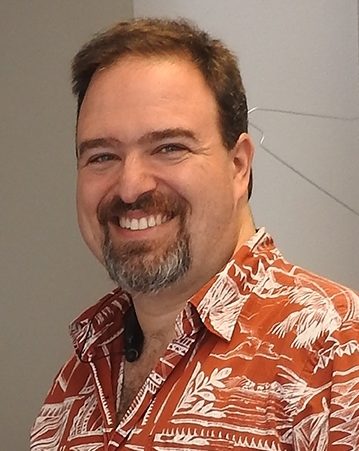
Geoffrey Attardo, PhD
Associate Professor, University of California, Davis
Dr. Geoffrey Attardo is an associate professor in the Department of Entomology and Nematology at the University of California, Davis. He specializes in medical entomology, reproductive physiology, molecular biology and genetics. His work centers on understanding the reproductive biology of insect vectors of human disease. The goal of this work is to develop a detailed understanding of the molecular biology and physiology of these insects and to exploit this information to control these insects and the diseases they transmit. The primary subjects of his work are mosquitoes and tsetse flies. He has studied how female mosquitoes regulate their reproductive cycle and gene expression in response to blood feeding and demonstrated that mosquitoes require nutritional cues to begin developing eggs.
“Transcriptomic profiles of Ixodes pacificus under acaricide treatment and host blood meal“
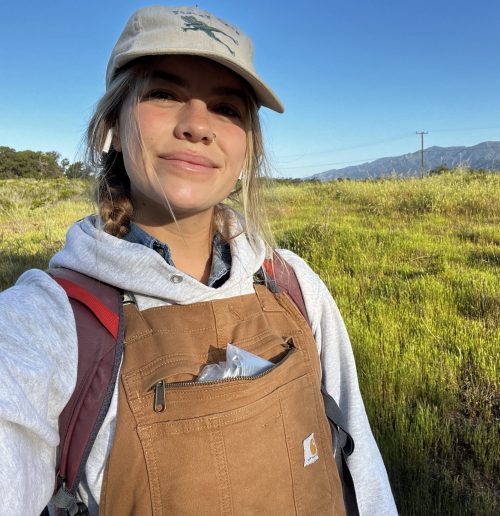
Kacie Ring, MS
Kacie Ring is a PhD candidate in ecology, evolution, and marine sciences at the University of California, Santa Barbara. She completed her master’s degree in microbiology at San Francisco State University in August 2020. Kacie plans to continue her research on tick-borne pathogens, studying their responses to changing landscapes and climates during her PhD. She hopes to utilize funding from PacVec to increase knowledge and awareness of tick-borne disease hazards to humans through an educational campaign that examines the engagement of the public on different educational materials. Moving forward, Kacie hopes to either stay in academia or pursue a career in public health continually examining the complex relationship between humans and ticks.
- Host blood meal identity modifies vector gene expression and competency. Ring K, Couper LI, Sapiro AL, Yarza F, Chou S, Swei A et al. Molecular Ecology. 2022. https://doi.org/10.1111/mec.16413
"The training grant from PacVec has substantially improved my academic experience. The grant paid for my tuition, provided me with a stipend, and funded my research. Prior to the grant, I was working part-time outside of the university to pay for my rent in one of the most expensive cities to live in, in the US. While the monetary gain improved my financial security and mental health, it also allowed me to devote more time to research. Through the grant, I was able to create a life-long friendship and collaboration with Angie Nakano and staff at San Mateo County Mosquito and Vector Control. The PacVec grant allowed me to pursue my research interests, invoked collaboration, and ultimately enhanced my success allowing me to continue on to a PhD."

Andrea Swei, PhD
Associate Professor, San Francisco State University
Dr. Andrea Swei is an associate professor in the Department of Biology at San Francisco State University. Research in the Swei Lab employs interdisciplinary approaches to understand the factors that determine the distribution and prevalence of Lyme disease and other tick-borne diseases. Dr. Swei’s research focuses on several different tick-borne disease systems such as Lyme disease, babesiosis, and Borrelia miyamotoi and employs ecological theory to examine the role of disturbance, habitat fragmentation, and biodiversity on tick-borne disease ecology and public health risk.
“Identification of social determinants of health associated with Aedes aegypti prevalence across Maricopa County“

Whitney Holeva-Eklund, PhD
Dr. Whitney Holeva-Eklund obtained her PhD in interdisciplinary health at NAU in 2023. She completed her Bachelor of Science in public health and minored in biology at Northern Arizona University (NAU) in 2017. During her graduate studies, she worked in Dr. Crystal Hepp’s lab and focused on understanding the relationship between health equity and the invasive mosquito vector Aedes aegypti in Maricopa County, Arizona. She hopes that these projects will directly inform mosquito control practices in Maricopa County and potentially in other desert regions by creating a better understanding of how this mosquito is surviving in arid environments.
- Systematic review: The impact of socioeconomic factors on Aedes aegypti mosquito distribution in the mainland United States. Holeva-Eklund WM, Behrens TK, Hepp CM. Rev Environ Health. 2020. https://doi.org/10.1515/reveh-2020-0028
"Receiving a training grant from PacVec has allowed me the time I needed to focus on the work that I will complete for my dissertation. I have been able to learn a lot about mosquito vectors, mosquito-borne diseases, and statistical methods as I have completed this project."
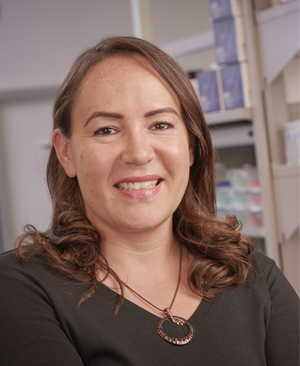
Crystal Hepp, PhD
Associate Professor, Translational Genomics Research Institute
Dr. Crystal Hepp is an associate professor in the Pathogen and Microbiome Division of the Translational Genomics Research Institute. Dr. Hepp has a background in evolutionary biology and genomics, and her lab focuses heavily on using environmental surveillance of pathogens, especially viruses, to understand their spread over time and space.
“Larval ecology of invasive Aedes aegypti and Aedes albopictus mosquitoes in southern California“
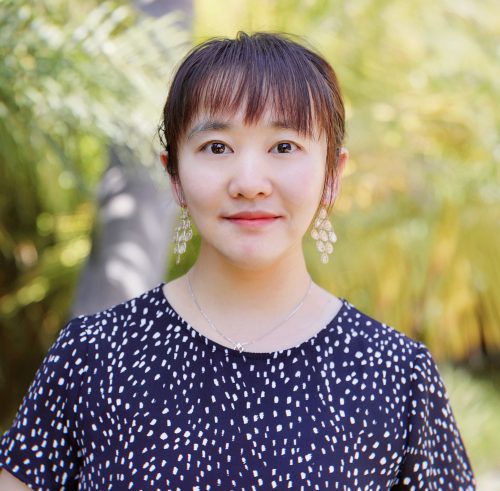
Xiaoming Chloe Wang, PhD, MSc
Dr. Xiaoming Chloe Wang is a postdoctoral research scientist and project coordinator at the University of California, Irvine. In the long-term, Dr. Wang would like to establish a career as a leading faculty researcher in vector biology at a major research university, a vector biologist at a state health department, or local mosquito and vector control district.
- Impact of underground storm drain systems on larval ecology of Culex and Aedes species in urban environments of Southern California. Wang X, Zhou G, Zhong D, Li Y, Octaviani S, Yan G et al. Sci Rep. 2021. https://doi.org/10.1038/s41598-021-92190-3
- Significance of Underground Storm Drain Systems (USDS) breeding sites for invasive Aedes aegypti and Aedes albopictus mosquitoes in Southern California. Wang X, Cummings RF, Octaviani S, Shin AT, Shin PI, Bastear JL, Yan G. Proceedings and Papers of the Mosquito and Vector Control Association 88: 130-131. https://www.mvcac.org/amg/wp-content/uploads/ppmv-88-01-combined-finals.pdf
"This is the first grant in my life; I learnt a lot personally and professionally. This is very essential for my future career development. I had the opportunity to work with the local Mosquito and Vector Control Districts, and benefited greatly from in-depth interaction with them and from field based ecological studies of mosquitoes and other vectors. I also got the chance to meet colleagues in the same field. From this experience, I deeply appreciate the value and contribution of vector biologists to society through research and community-based intervention for the prevention and control of vectors and vector-borne diseases."

Guiyun Yan, PhD
Professor, University of California, Irvine
The Yan Lab is interested in the epidemiology of vector-borne diseases and vector biology. The Yan Lab examines the (1) mechanisms leading to the resurgence of malaria in African high-elevation areas, including climate, land use, topography and antimalarial drug resistance in the Plasmodium parasites, (2) molecular epidemiology and population genetics of Plasmodium vivax in endemic southwestern Ethiopia, and (3) population biology of African malaria vectors.
"Wolbachia infections in mosquitoes of Merced County"
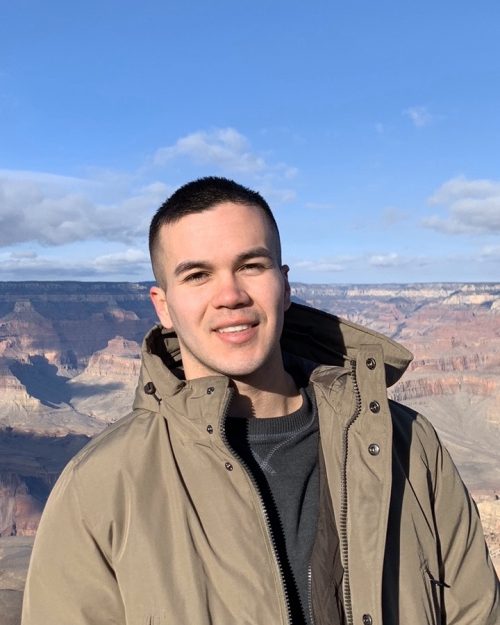
Ryan Jacob Torres, BS
Ryan Jacob Torres is a public health PhD candidate at the University of California, Merced. His research interests are in vector-ecology, biological control, population genetics, and infectious disease. Moving forward, he intends to continue developing collaborations with vector biology research, with the goal of pursuing a tenure-track position within academia.
- Wolbachia in mosquitoes from the Central Valley of California, USA. Torres R, Hernandez E, Flores V, Ramirez JL, Joyce AL. Parasites Vectors. 2020 Nov 10. https://doi.org/10.1186/s13071-020-04429-z
"Receiving a training grant from PacVec has made a tremendous impact on my life. As a graduate student with the intention of pursuing academia, the training grant provided me with many opportunities for personal development. Most importantly, it allowed me the opportunity to give my first conference presentation at the 2020 MVCAC meeting in San Diego, and another at the PacVec annual meeting in Riverside. At both of these meetings I was able to build upon my network and learn through valuable conversations with my peers and other established professionals. Ultimately, the PacVec training grant awarded me invaluable insight into the research process that I can now build upon and share."

Andrea Joyce, PhD, MS
Associate Professor, University of California, Merced
Dr. Andrea Joyce is an associate professor and an entomologist. Her research interests include vector ecology, insect behavior, insect population genetics, biological control and integrated pest management for insects of agricultural and public health importance. Current research includes vector ecology and Integrated Pest Management (IPM). Her vector ecology research focuses on mosquitoes, and includes identification of vector species and strains, understanding the habitat they thrive in (ecology), and investigating factors associated with vector-borne disease.
“Northern California physician assessment of knowledge, attitudes, and practices for Lyme disease in a low-endemic state“
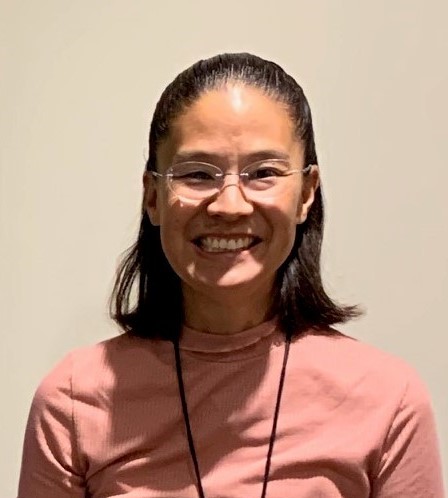
Sharon Ichiko Brummitt, MPH
Sharon Ichiko Brummitt is a PhD candidate in epidemiology at the University of California, Davis. In the short-term, she aims to complete her PhD career at UC Davis with a dissertation topic that may have immediate implications in public health, specifically taking an analytical and serological approach to the understanding of human Lyme disease in California. In the long-term, Sharon hopes to obtain a position (e.g. federal or state level) where she can use her epidemiological knowledge and skills to develop programs or directly impact public health knowledge and practice.
- Assessment of physician knowledge, attitudes, and practice for Lyme disease in a low-incidence state. Brummitt SI, Harvey DJ, Smith WA, Barker CM, Kjemtrup AM. Journal of Med Entomol. 2022. https://doi.org/10.1093/jme/tjac137
“Receiving the PacVec training grant has provided me an opportunity to carry out research in an under-studied area of healthcare that being the knowledge, attitude and practice of Lyme disease in a low incident state in the U.S. such as California. The proposed study results could help tailor educational interventions and evaluate potential improvements to diagnostic testing. The main objective of this study was to describe clinicians' knowledge and practices regarding diagnostic testing for Lyme disease in a low endemic state. I believe my research project would provide educational messaging to physicians in California on the testing and treatment of Lyme disease."

Woutrina Smith, PhD, MPVM, DVM
Associate Dean and Professor and Agronomist, University of California, Davis
Dr. Woutrina Smith’s research program uses One Health approaches to investigate the epidemiology and transmission dynamics of zoonotic pathogens locally in California as well as internationally at multiple project sites in Africa and Asia. As a molecular epidemiologist working at the interfaces of humans, animals, and their shared environments, waterborne fecal pathogens as well as milk- and airborne transmitted zoonotic agents are of particular interest when considering individual and population health issues.
“Next-generation-sequencing-based means for mosquito surveillance and detection of mosquito-borne pathogens“

Aurélie Kapusta, PhD
Dr. Aurélie Kapusta is a senior bioinformatics scientist at Illumina. Dr. Kapusta's goals are to improve her skills in bioinformatics and knowledge in infectious diseases diagnosis (with metagenomics). She is currently focused in the development of solutions for Infectious Disease detection.
"The collaboration with the SLC Mosquito Abatement District started when I was still a postdoctoral fellow at the University of Utah, and I have been really enjoying it: I have learned so much! Moreover this work is consolidating fruitful professional relationships, playing on the strengths of industry, research lab (Mark Yandell lab at the University of Utah), and SLCMAD, which may not be that strong without the PacVec grant."

Ary Faraji, PhD
Adjunct Assistant Professor, The University of Utah
Executive Director, Salt Lake City Mosquito Abatement District
TRAINING GRANT PROGRAM
PacVec’s training grant program intends to provide career development opportunities for individuals interested in public-health-relevant research on vector-borne diseases and to enable additional research and training opportunities that will contribute to the development of the public health workforce.
TRAINING GRANT RECIPIENTS
The Pacific Southwest Regional Center of Excellence in Vector-Borne Diseases is supported through Cooperative Agreement Number 1U01CK000649 between the Centers for Disease Control and Prevention (CDC) and the University of California, Davis.
© 2024 – All rights reserved